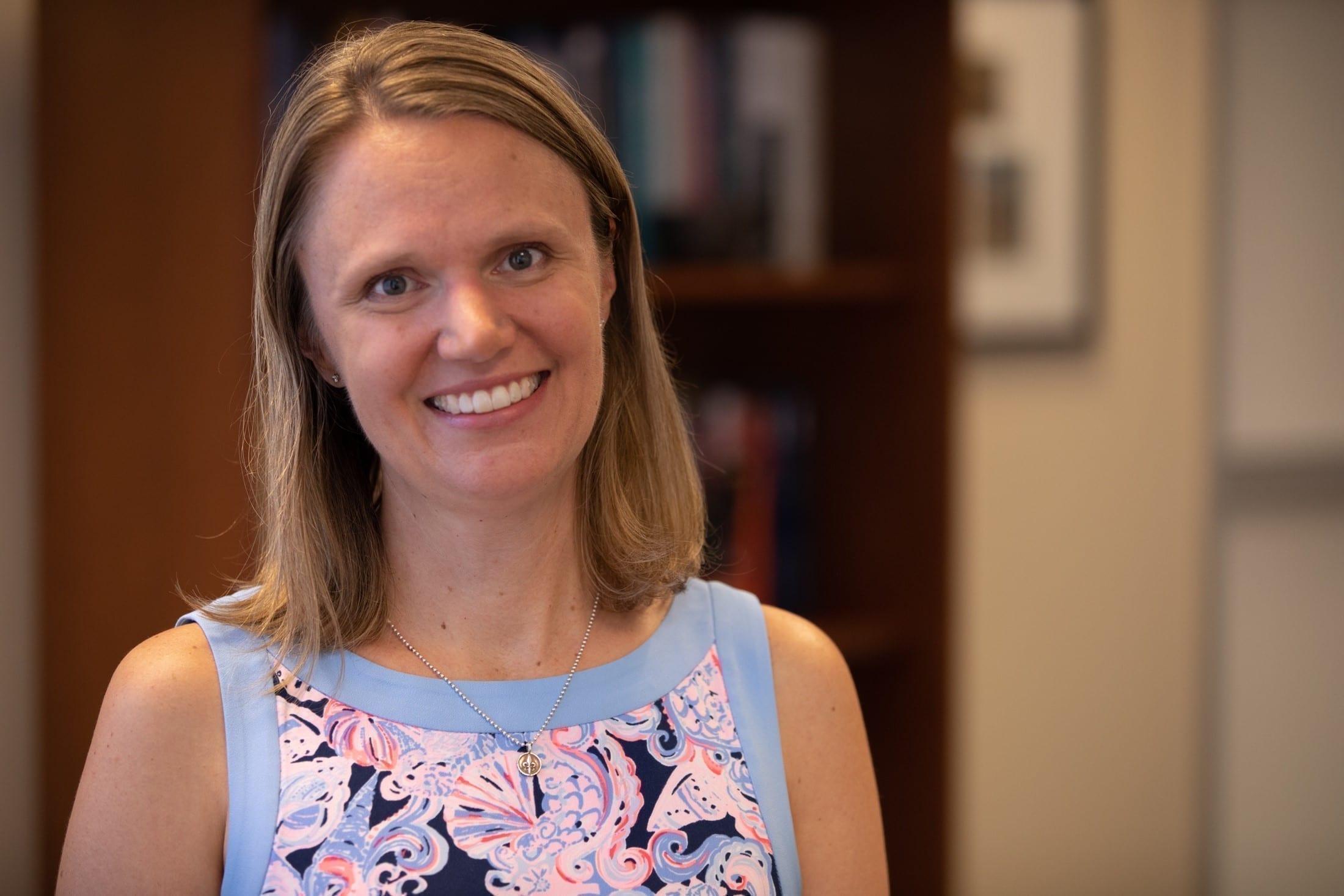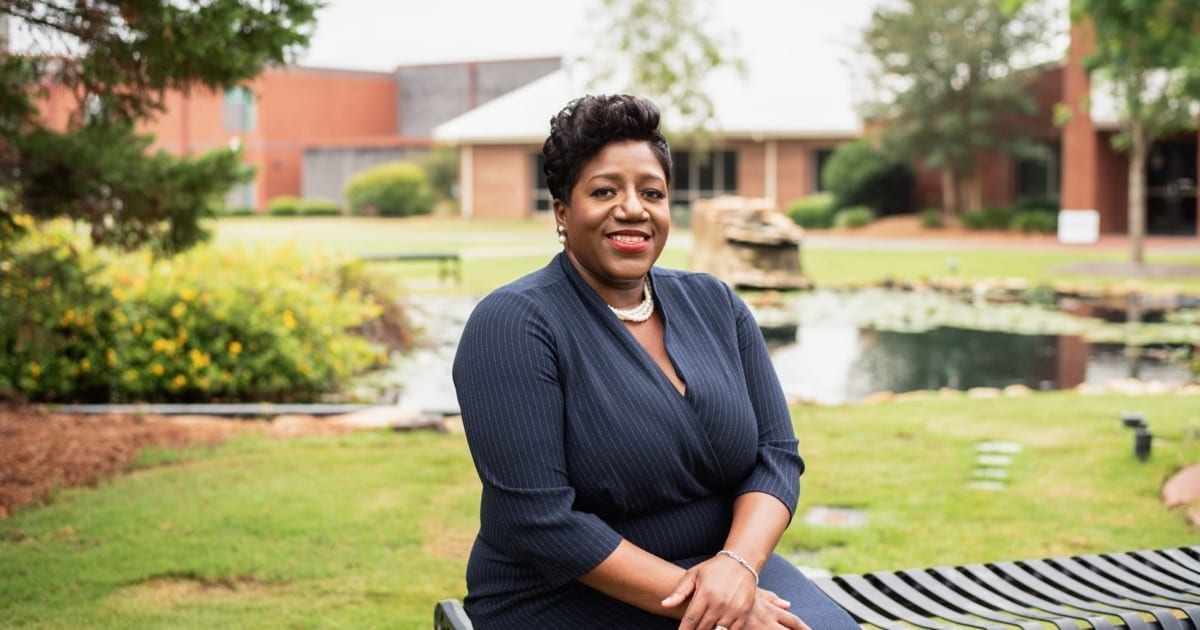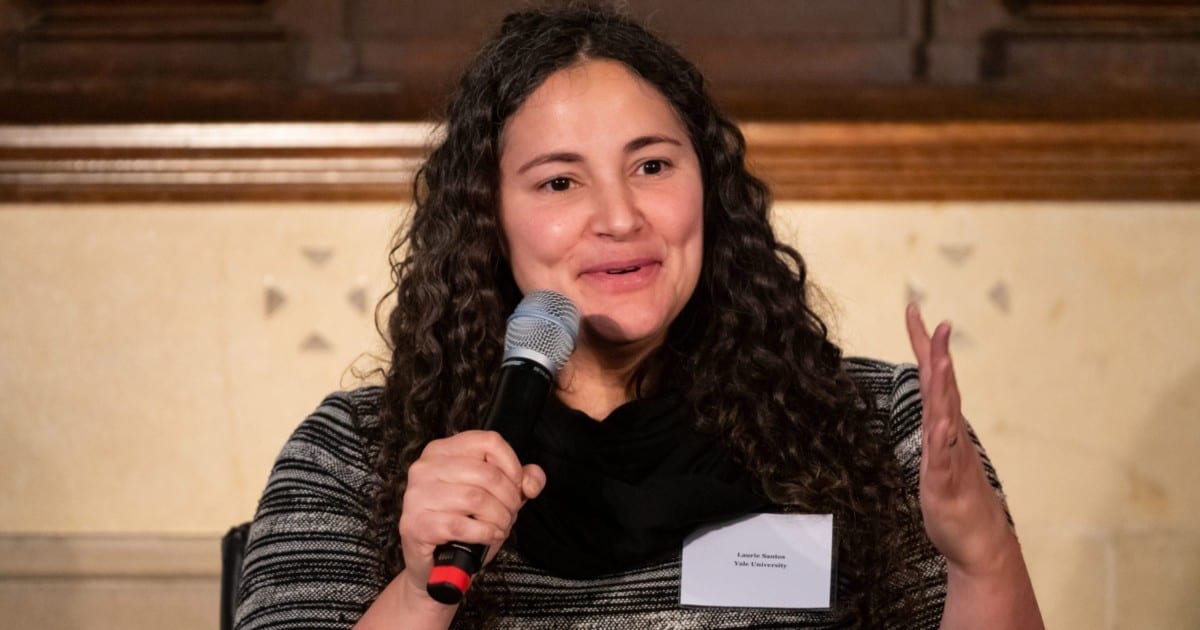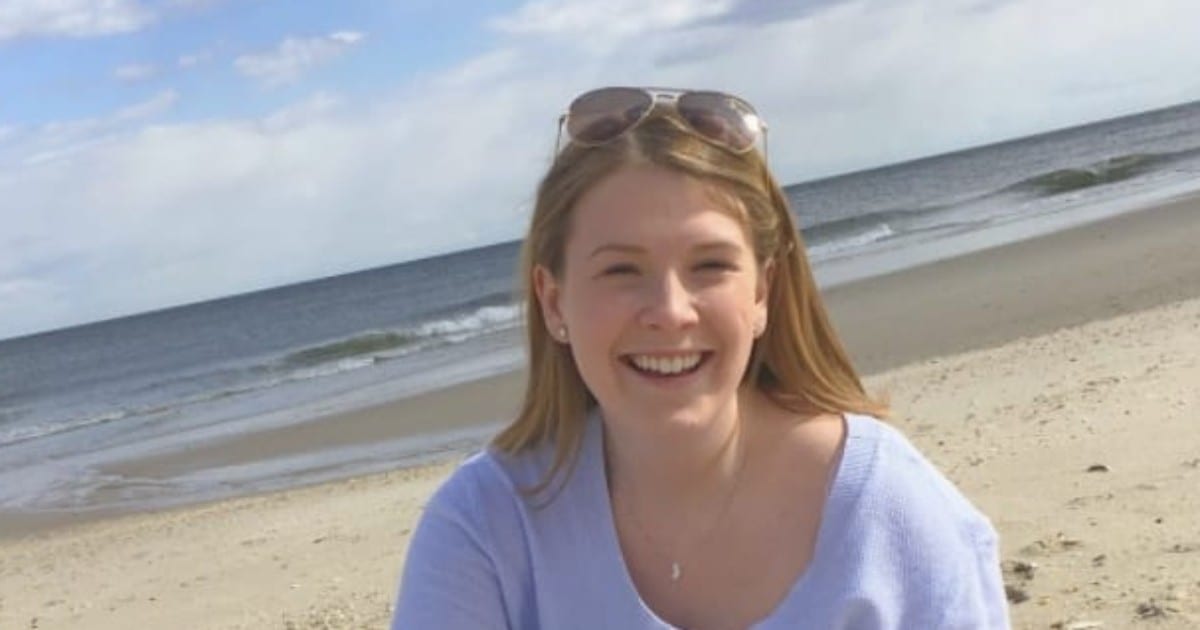Most in the field of college mental health will remember that the American Council on Education (ACE) conducted a survey last year indicating that eight out of 10 college presidents saw student mental health as a rising priority.
They might also remember that an ACE brief written by Healthy Minds Network showed the impact of untreated mental health issues on GPA and retention and advocated for mental health investments as part of an ROI strategy.
The person behind these efforts is Hollie Chessman, PhD, whose roles at ACE grew from post-doc to research fellow to her current position as Associate Director for Research. Chessman says her focus at ACE is a reflection of a former ACE board member’s interest and the organization’s growing commitment to the concerns of its members — higher education leadership – about the rising rates and negative impacts of mental health issues among college students.
“My research focus at ACE really underscores the place student mental health holds among the priorities of college presidents,” said Chessman who has relied on her experience as a former student affairs professional. “It is a wonderful opportunity for me personally to be able to speak to a national audience about an issue I have been interested in for the last 15 years.”
Prior to coming to ACE three years ago, Chessman worked in student affairs at Tulane University, Lake Erie College, Loyola University New Orleans, and George Mason University. Her research interests focus on well-being among students and student affairs professionals, on which she wrote her dissertation. She spent over 10 years in student housing, including as associate director of residential life, where she saw first-hand how mental health and wellbeing issues manifested in residential communities.
Over her last several years in housing, Chessman noticed that student mental health and wellbeing issues were getting increasingly more serious.
“You had the feeling this was happening but there wasn’t really a lot of data that could shed light on it as a larger higher ed issue,” she said. “Now the longitudinal data from Healthy Minds and ACHA, show us how pervasive the problem is. I feel like doing the work to amplify that data and show the importance of addressing these issues is something that I owe to students in higher ed today.”
A Substantial Platform
ACE is a member organization that mobilizes higher education communities to shape public policy and foster innovation. Considered one of the most influential higher ed associations, ACE, which is based in Washington DC, conducts policy, research and advocacy on a range of higher education issues. Its president, Ted Mitchell, was Under-Secretary of Education in the Obama administration.
As the Associate Director for Research, Chessman says she wears several hats. In addition to leading research efforts specially focused on college student mental health and wellbeing, she works with colleagues to advance her division’s three priorities: student success, equity-minded leadership and institutional transformation – all of which she sees as interwoven.
“If students don’t have positive mental health, they have trouble completing their degrees and there are equity and ethical concerns around that as well,” she said.
Chessman says that in addition to conducting her research, her job is to translate research into practice. She spent the first couple of years of her position building networks and relationships across different mental health and wellbeing organizations – groups she calls “fabulous partners” like the Jed Foundation (JED), the Steve Fund, Healthy Minds, Active Minds, ACHA, and others.
To amplify the messages of advocates and experts, Chessman started a blog series on ACE’s Higher Ed Today platform and has published over a dozen essays from scholars and practitioners in the field. Her own research includes “College Student Mental Health and Well-Being: A Survey of Presidents” that significantly “moved the needle” on the universal need for higher education to address the student mental health crisis.
When asked if ACE has a specific point of view on the subject, Chessman quickly referred to the October 2019 op-ed by ACE’s Ted Mitchell that called for a comprehensive, campus-wide approach to the problem.
“Mental health and well-being among students is a serious and complex problem and should not be the sole purview of our campuses’ counseling centers….. Administrators and faculty and staff members all have a role to play in ensuring that students are not only surviving but also thriving,” – Inside Higher Ed.
Advancing that point of view is part of Chessman’s passion for the job and it appears as though she is just getting started. ACE’s response to the COVID-19 pandemic as it relates to higher education has acknowledged a heightened concern for student mental health. Chessman believes these issues will only become more concerning for higher education leadership as they begin to dig out from the massive implications of school closings.
In terms of ACE’s research agenda, next up is an analysis of the many mental health task forces that presidents and/or provosts have called for over the past ten years.
“We’re doing an analysis across public-facing reports to give college leaders an insight on important considerations to think about as they pursue similar efforts,” she said. “What are issues task forces are looking at? What data are they pulling from? and what can they replicate in terms of recommendations?”
Chessman is also working on a brief with Wake Forest University’s wellbeing collaborative to understand what steps institutions can take to support students of marginalized identities — an example of the intersection of mental health, equity and inclusion that permeates all facets of ACE’s work.




